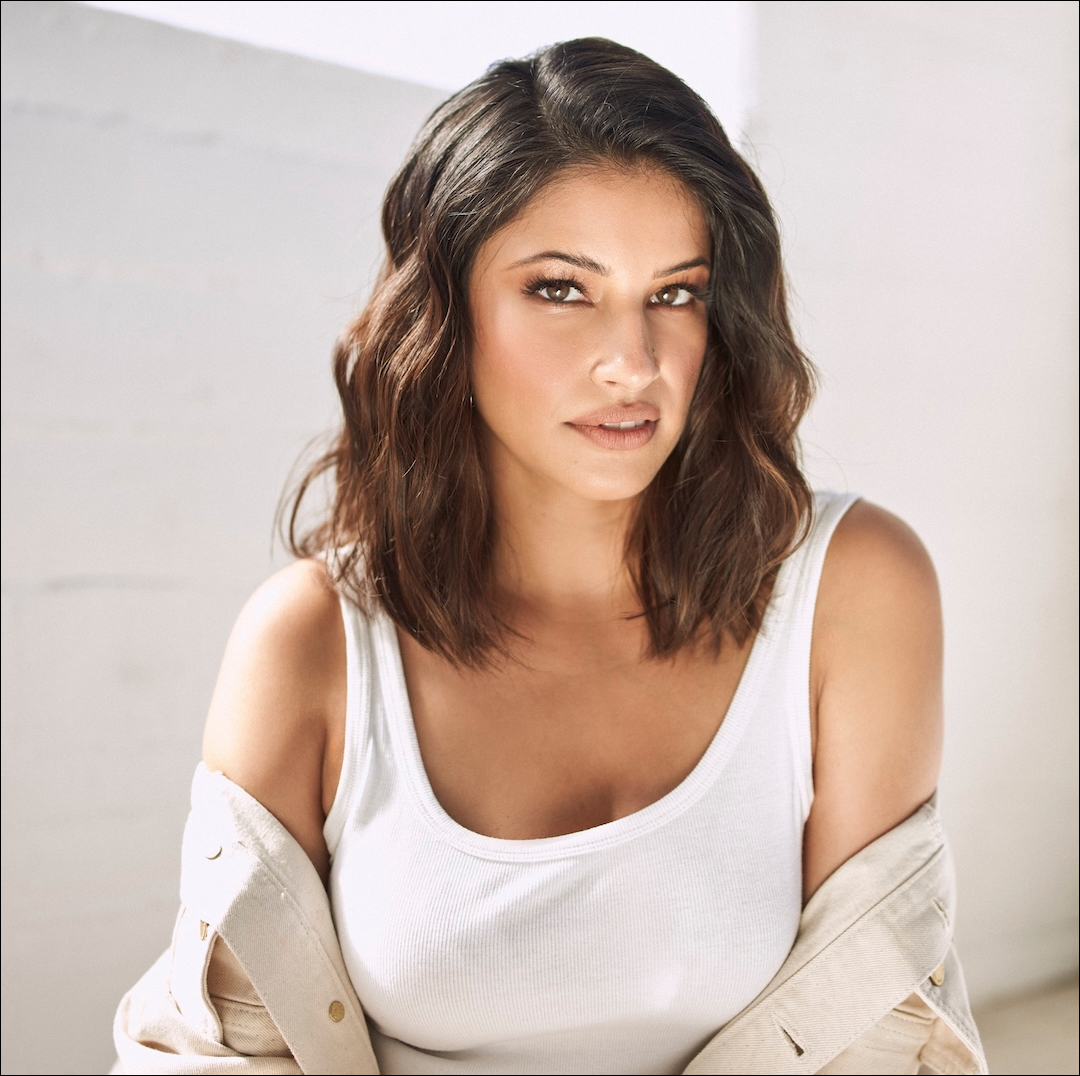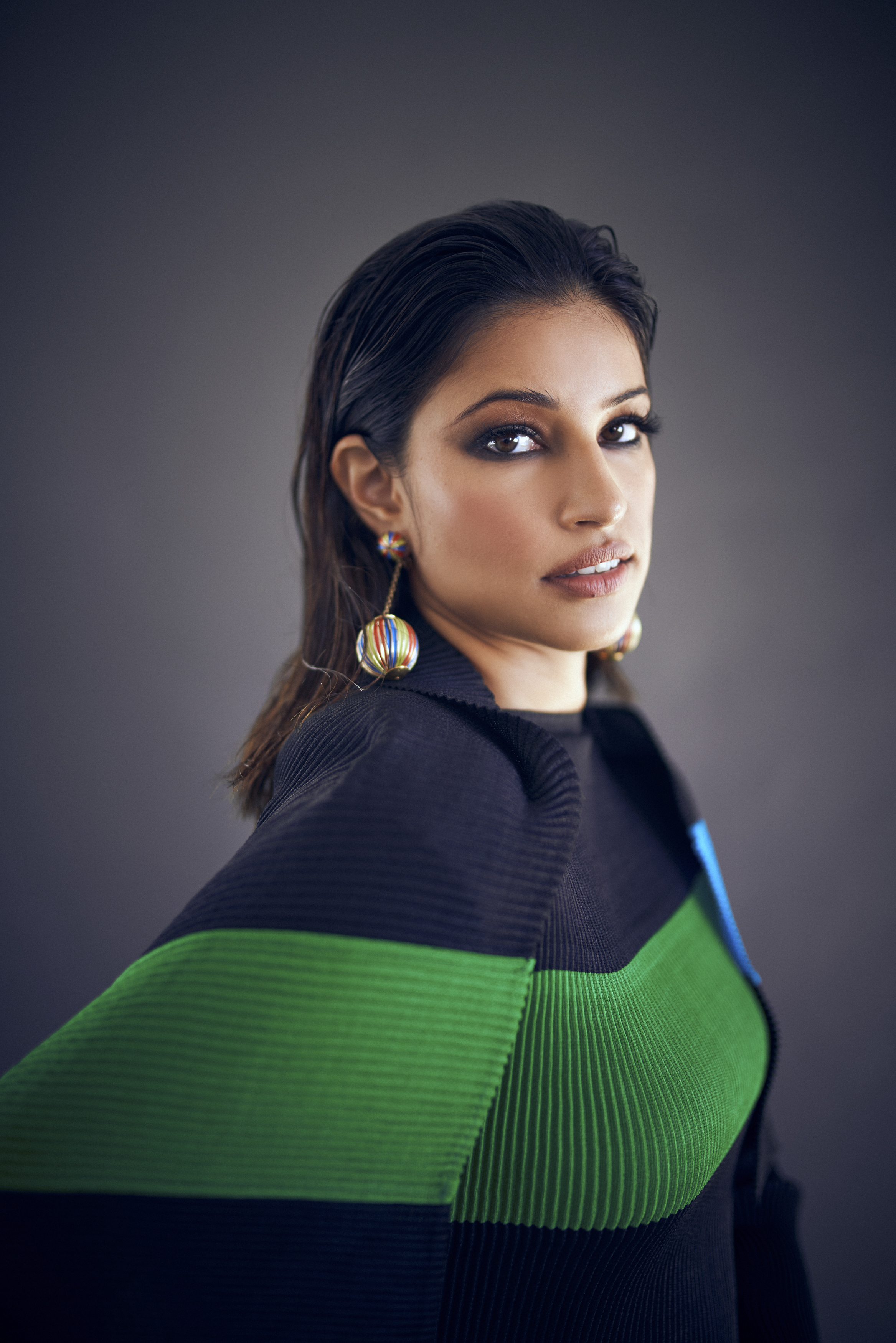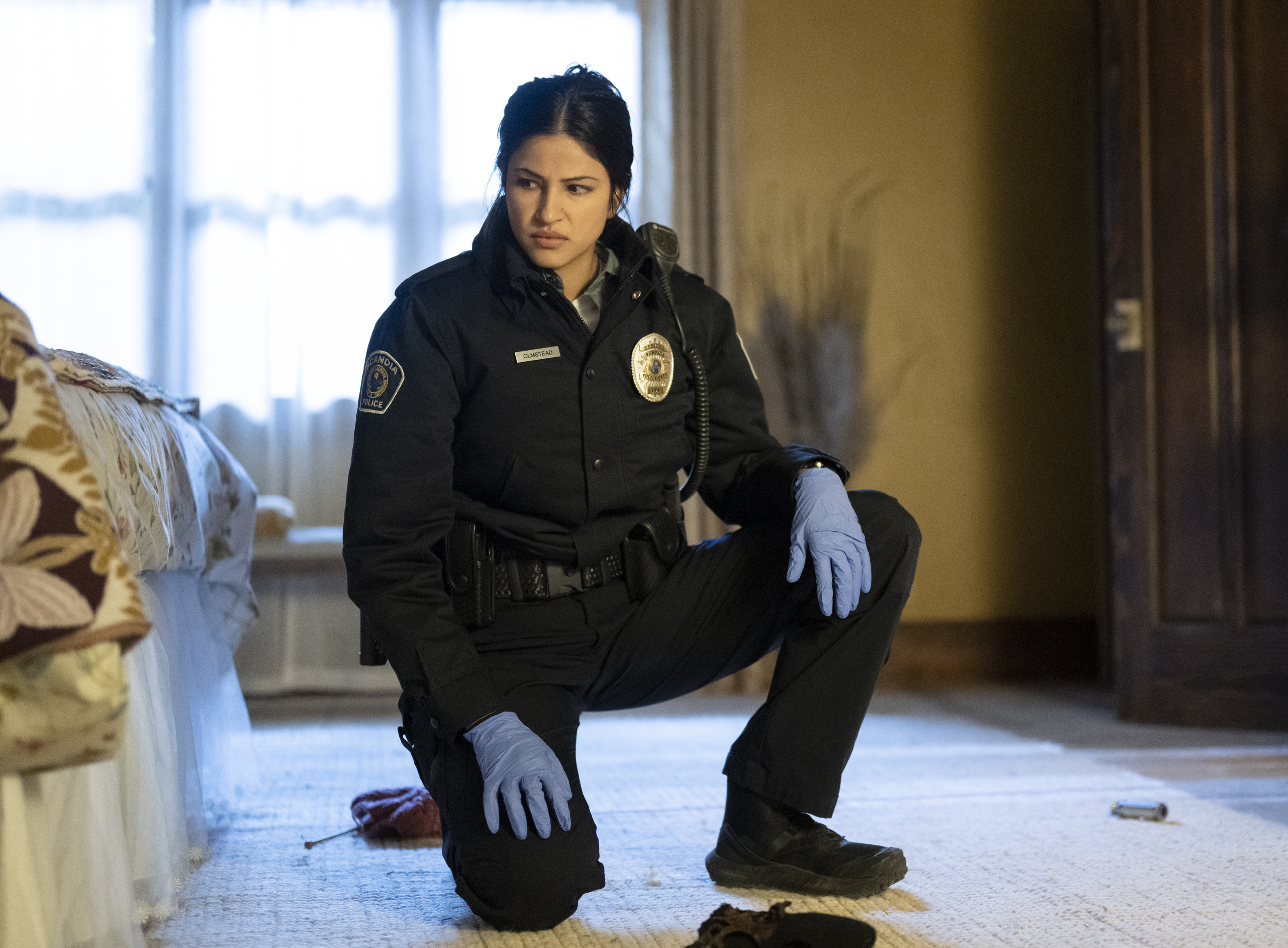
Richa Moorjani’s breakout role as cousin Kamala on Never Have I Ever introduced the actress to millions of fans who fell in love with her down-to-earth and honest portrayal of the brilliant and ambitious PhD student. But much like Kamala did in the Netflix show's series finale, Moorjani is moving on to new and rewarding challenges—despite some initial hesitation about spreading her wings.
Soon after Never Have I Ever's conclusion, Moorjani landed a gig as a main cast member on the FX’s Emmy-winning anthology Fargo (currently airing on Tuesdays through January 16, 2024). Though the star admits to Marie Claire that she needed a bit of a push to go through with the audition, she’s an indispensable part of the fifth season’s ensemble as Police Deputy Indira Olmstead, the franchise’s latest upstanding female cop tasked with investigating a series of gruesome, slightly absurd murders.
Here, Moorjani chats about falling in love with the Fargo franchise, how Never Have I Ever helped build her confidence on set, and nailing that Minnesota accent.
Marie Claire: What made you interested in playing the character of Indira?
Richa Moorjani: I don't even think I got the full script at first, just a couple of scenes from the first episode. I was actually very scared to do the audition. I almost passed on doing it because it was so different from anything I'd ever done before. I was scared of having to do a Minnesota accent, which I had never heard in my entire life. I feel like I typecast myself. I was like, I don't think I can do this. But my manager as well as my best friend Poorna [Jagannathan, her Never Have I Ever co-star], basically forced me to do it, and thank god they did. After the audition, I got the call that Noah Hawley, the creator, wanted to meet with me, and my mind was blown. I was like, Why does he wanna meet me?
I had an amazing meeting with him; he described the character and more about the [arc] of the season. Then I received the first two scripts of the show, and after I read those, I was completely engrossed and felt an immediate connection to Indira. I was blown away by how much depth this character was written with and how interesting she was as a South Asian character that we've never seen before—not in the world of Fargo or really ever on in American television.

Which parts of Indira’s story stood out to you?
RM: I saw that she has this inherent desire to fight for justice. She's extremely observant and smart and pragmatic, and she comes off as the kind of person who will stay up all night if something around her has not been solved. I can totally relate to that. I think that we both are very aligned in terms of being a brown woman and feeling underrepresented and having to fight in so many ways to get to where we are. And because of that, having a certain awareness and point of view in the way we see the world. But then also we're very different. I could never have the courage or the guts to become a police officer.
The female cop is such an iconic character within Fargo, both in the movie and in the show. How did you approach building a character who is the moral center in a season of mostly horrible people and chaos?
RM: When I auditioned for it and when I spoke with Noah, she was described to me as the moral center of the story— kind of a new take on the Marge Gunderson character from the movie [played by Frances McDormand] but with a totally new perspective, especially because it's specifically written as an Indian American character.
What was the process of getting the accent down?
RM: When I got the audition, I had actually never seen the movie or the show, and I had never heard a Minnesota accent, which is why I was so initially hesitant about doing it. But then I watched the movie and I inhaled the first season of the show, fell in love with the world of Fargo, and with the accent. It kind of came to me pretty easily and naturally, even though it's totally different from an Indian accent—I was in the middle of doing an Indian accent for Never Have I Ever when I got this audition. I'm kind of a chameleon, so whenever I hear people speak with different dialects and accents, I just start hearing it in my head and copying it out loud. But at the same time, I worked a lot on it with a proper dialect coach, who was the [same] dialect coach for the movie and all of the previous seasons of Fargo. So that was really incredible to get to work with her.

You said in a previous interview that Never Have I Ever helped build your confidence in regard to going to a new set and being the only brown person there. Were there any concrete ways you saw that confidence come out on Fargo?
RM: Going into Fargo, I definitely had imposter syndrome and felt very intimidated and scared that they made the wrong choice by casting me. I felt like I had such big shoes to fill, and I was really terrified that I was gonna screw it up. It was such a huge opportunity, but also a responsibility, because the show means so much to so many people. This character is a very important character, and she carries so much of the story, so I just really wanted to get it right. I think I would've been a lot more nervous had I not just come off of a show like Never Have I Ever where I felt such a sense of belonging, was allowed to take up space, and was made to feel like I deserved to be there and I belonged there.
It's almost like going to a new school, and it's all new students and none of them look like me. But at the same time, everyone was just so incredibly warm and kind. Everyone from the EPs to the cast to the crew were some of the most incredible people I've ever worked with. So that all helped to make me feel at home when I was there in Canada.
We also get to see a lot of Indira’s personal life in the season, with her husband Lars [played by Lukas Gage] and dealing with their household debt. What was it like filming those scenes?
RM: Oh my God, it was so much fun. That's what made me fall in love with the character and the arc of Indira when I was getting the scripts. Because you see her as much more than just a cop doing procedural cop work. In real life, cops do have lives outside of being cops. To get to see a brown woman, who's a cop, in her personal life, that's definitely something I've never seen before.
We both are very aligned in terms of being a brown woman and feeling underrepresented and having to fight in so many ways to get to where we are.
Another thing I really loved about the season is you have all these women being badasses juxtaposed with all of these fragile male egos.
RM: I think Fargo's always been a very female empowering world, but specifically this season, I think that with Lorraine and Dot and Indira who are all seemingly very different and on different paths and have different points of view, but at the same time, they're all really strong badass women who have had to fight really hard to be where they are. They're actually more similar than not, and we see how they actually really need each other to get through the craziness as the season goes on.
You’re coming off these mega-hit shows with Never Have I Ever and Fargo. What do you hope to accomplish in your acting career going forward?
RM: I feel very spoiled coming off of two "mega-hit" shows, but also just shows that have meant so much to me and have made me grow so much as an artist and as a human being. If anything, it has set the bar very high for me, so maybe that's not really a good thing. Because now every time I get a script that's not anywhere near that level, I'm just like, ‘Get that away from me.’ But I feel like I've also earned that, to be in a place where I can be more picky.
As an actor and as a storyteller, all I want to do is be a part of projects and stories that have an impact. It doesn't mean that they have to be super serious or change the world, but if it can be funny and have some kind of strong social message, that's amazing. And if it can help shift the narrative and create more space for South Asians, then that's also amazing. We all have such different ways that we've grown up, different belief systems, and ways that we live our lives. I'm always interested in seeing South Asian stories about lives and characters that we just haven't seen yet [on screen]. And stories that normalize being a brown person in this country who goes through the same things that anybody else goes through, like mental health issues or divorce in their family. Just evolving past the same storylines we've kind of already seen many times.
This interview has been edited and condensed for clarity.







